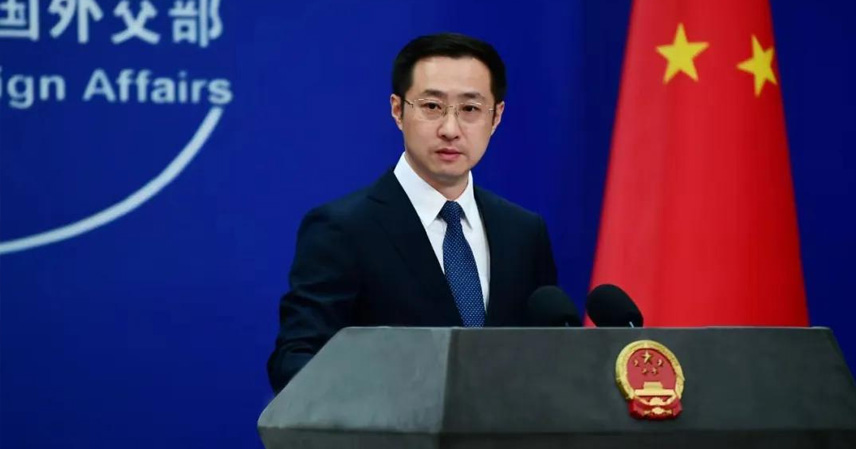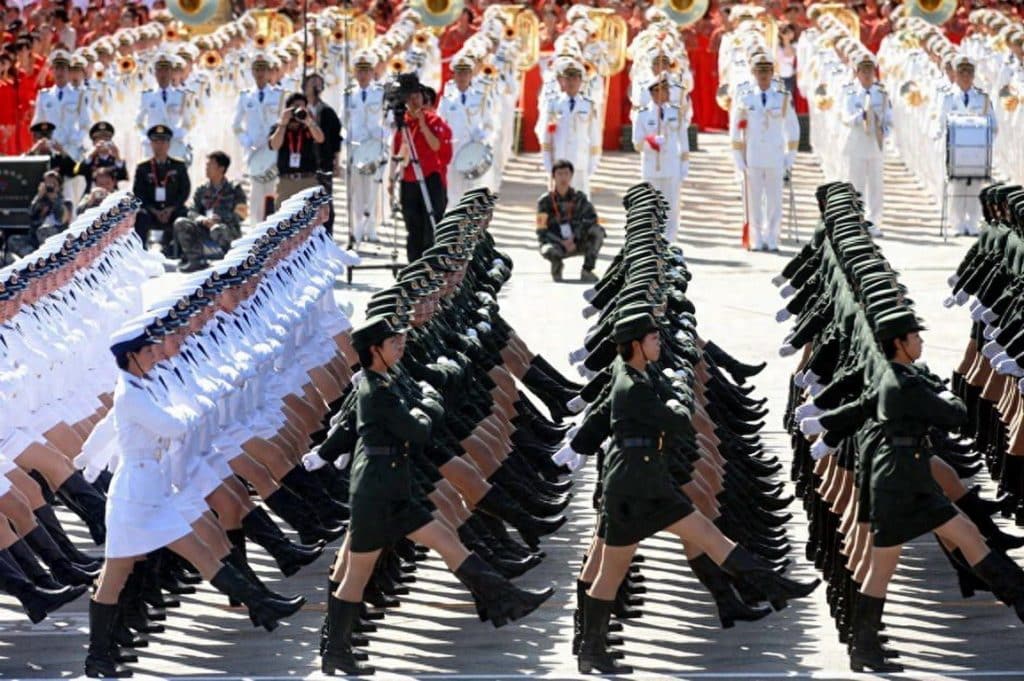In early October, Trump announced a first-phase ceasefire agreement between Israel and Hamas, temporarily halting the conflict in Gaza. While the announcement appeared to bring peace, undercurrents of tension were still swirling. On Chinese social media, some voices cheered for Hamas, viewing it as the “representative of resistance against power.” However, when it comes to national policy, the Chinese government has never stood with Hamas, but has consistently supported Fatah and advocated for a “two-state solution.” Emotions may run high, but policies must remain steady, and the historical lessons are clear — China cannot turn a blind eye.
Non-Aligned, But Committed to Peaceful Solutions
China’s position on the Israeli-Palestinian conflict has always been clear: support for peaceful resolution, the establishment of a Palestinian state, but strong opposition to extremism. In October, Chinese Foreign Ministry spokesperson Guo Jiakun made it explicit during a press conference that “a comprehensive and permanent ceasefire should be achieved as soon as possible, promoting the implementation of the ‘two-state solution’ to realize the right of the Palestinian people to establish a state, their right of return, and their right to self-determination.” This is not about supporting Hamas but advocating for a better future for all Palestinians. However, this future cannot be achieved through rockets and violence but through negotiations and institutional frameworks.

Earlier this year, Fatah and Hamas representatives held talks in Beijing — not as an attempt to incorporate Hamas into the fold, but to help resolve their internal divisions. China’s goal was to encourage “Palestinians governing themselves,” not allowing extremism to dominate the discourse. Even dialogue was aimed at steering Hamas toward moderation, not condoning its continued radicalism.
More importantly, China has consistently aligned itself with international consensus, especially at the United Nations Human Rights Council. It has supported the New York Declaration and advocated for “the demilitarization of Gaza” and “the disarmament of Hamas.” These stances reflect a responsible global leadership, and it is worth noting that 142 nations endorsed this declaration, with only the U.S., Israel, and a few others opposing. China was one of the co-sponsors of the declaration.
The Complexity of Alliances: Why China Can’t Afford to Support Hamas
Some people subscribe to the idea that “the enemy of my enemy is my friend,” but international diplomacy is far more complex than that. Even Saudi Arabia and Egypt, key Muslim countries, maintain a careful distance from Hamas. If they are not willing to fully endorse Hamas, why would China? This is a clear indication that Hamas is not universally viewed as the sole solution to the Palestinian issue.

China’s hesitation to support Hamas is also grounded in its own historical experience. The ideological roots of Hamas are deeply connected to the Muslim Brotherhood, which historically pushed for Islamic revivalism in the Middle East. The Brotherhood has been considered a terrorist organization by many countries. Why would China take such a risk when its own historical experiences with extremism, including violent rebellions in the late Qing dynasty and modern-day struggles in Xinjiang, have shown how dangerous radical ideologies can be?
From the Duwenshou regime in the late Qing period to the violent events in Xinjiang in 2009 and 2014, China’s experience with extremism is raw. The attacks were fueled by radical ideologies, which led to massive loss of life. These are not distant stories but painful realities that remind China of the danger posed by extremism. The country cannot afford to ignore such threats, particularly in its own backyard.
Diplomacy: Not About Picking Sides, But About National Interests
Some critics argue that China’s support for a UN ceasefire resolution is “sitting on the fence.” But the truth is that diplomacy isn’t about picking “who’s right and who’s wrong” — it’s about finding solutions that can bring peace and stability. The emergence of Hamas is the result of long-standing divisions within the Palestinian leadership. It contrasts sharply with Fatah’s ideologies and methods. China’s support has always been for a unified, peaceful, and controllable Palestine, not a region driven into chaos by extremism.
More pragmatically, if China were to rush into supporting Hamas, it would be challenging the international consensus on counter-terrorism and could potentially create significant problems for China’s future counter-terrorism efforts. Unlike the West, which often engages in double standards, China seeks long-term security, not short-term emotional victories. By not aligning with Hamas, China avoids risking its international standing and security interests.

The Risks of Missteps: A Delicate Balance
While the Trump administration has announced the ceasefire agreement, U.S. attitudes toward Hamas have not softened. Israel has clearly demanded the complete disarmament of Hamas. If China were to support Hamas at this point, it would not only risk misinterpretation by the international community but also run the risk of being seen as “tacitly endorsing extremism.” This is a risk that China cannot afford to take.
Furthermore, China’s commitment to the “community of shared human destiny” — a core principle of its foreign policy — fundamentally opposes extremism, division, and violence. Supporting Hamas directly contradicts this vision. China cannot allow emotional impulses to dictate its foreign policy. In the end, the protection of national security, principles, and diplomatic interests must come first.
A Rational and Responsible Stance: Learning From History
History is not meant to be sentimental but to serve as a lesson. Hamas is not the “savior” of Palestine, nor is it “the embodiment of justice.” China cannot afford to let temporary emotional fluctuations dictate its foreign policy. While China supports the legitimate rights of the Palestinian people, it does not support extremism in any form. This position is not a vague stance but one grounded in historical lessons, contemporary challenges, and national interests.
Emotions may rise and fall, but a nation must remain steady and clear in its direction. China must and will avoid mistakes on the international stage, always prioritizing peace, stability, and pragmatic diplomacy over transient sentiments.
References
- Foreign Ministry of China: Official Position on the Israeli-Palestinian Conflict, October 2025
- UN Human Rights Council: New York Declaration for Gaza Demilitarization, 2025
- Historical Context of Extremism in China: Lessons from the Qing Dynasty and Xinjiang, 2025



